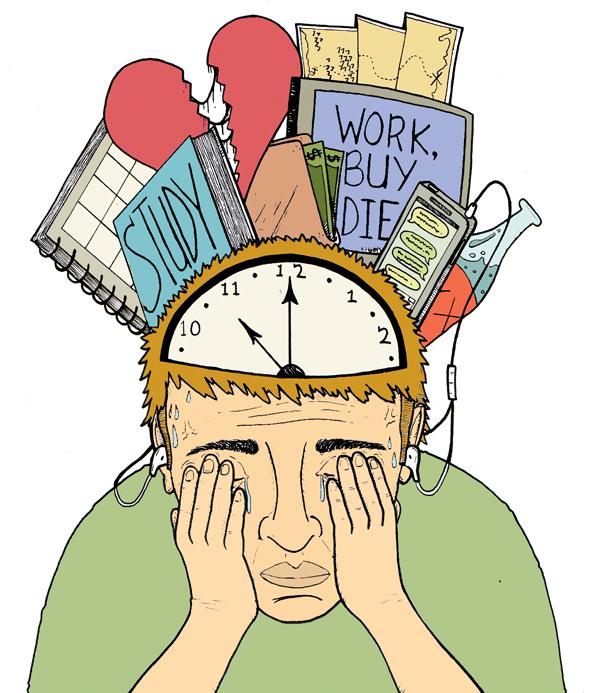Dealing with stress
Campus lacks mental health center, therapy
Oct 7, 2014
Though the college has made available to students numerous resources to further their academic progress, it lacks one to aid their mental health.
Health and human services professor and Chairperson Aminta Mickles said Contra Costa College has not had a proper mental health center on its campus since the previous one was shut down during the late 1980s.
Although efforts were made to keep some sort of center open for students, the Wellness Center that was located in the former Humanities Building went with the building when it was torn down last year to make way for the construction of the new Classroom Building.
That small facility, run by interns, was the last available means for students with any kind of emotional distress to get help. The absence of a mental health center is a cause of great concern among faculty who find themselves at a loss to assist their students in need of help, Mickles said. The push for a place to help such students has largely gone unnoticed.
Mickles said students deserve to have a place on campus dedicated to mental health with professionals available to assist them.
“Students need a safe and secure place that makes them feel comfortable, not just a hole in the ground,” she said.
Psychology professor Michel Arnold agrees that there should be a mental health center on campus. Arnold and Mickles both said they often have students come to them not knowing where else to go for help.
“A mental health center is definitely needed. It’s essential,” Arnold said.
None of the three colleges in the district — CCC’s sister colleges are Diablo Valley in Pleasant Hill and Los Medanos in Pittsburg — have any form of center for mental health.
Mickles and other instructors have brought up the issue at various administrative meetings, the Department Chairpersons Retreat and at a United Faculty meeting, she said.
Mickles emphasized that a mental health center would serve not only those students with mental health disorders, but anyone going through a difficult situation.
There is also hope to not limit a possible center to only mental health, but to health of the students in every aspect. This could especially be helpful to those with no health insurance, she said.
Although both professors try their best to steer students in the right direction, Mickles said it is not the same as having the resources available on campus. She said she may be able to tell students where to go to get treatment, but it is never guaranteed that they will get there and receive the help they need.
To better help professors, a book has been put together titled “Assisting the Emotionally Distressed Student,” which instructs professors on how to best deal with specific situations brought about by a student. It comes with outlined dos and don’ts for an array of situations.
Marshall Alameida, nursing department chairperson, said he could not agree more with the idea of a mental health center on campus.
Dr. Alameida believes that the general community, as well as college students, could benefit from a mental health center being present at CCC.
He said that there have been accounts of non-students coming to the college looking for any kind of help from the problems they were battling, expecting that an institute of higher education would provide them with something, anything.
For now, help is limited to pamphlets that give students mental health information.


